
Care of the Elderly induction booklet was contributed by the following doctors;
written by Dr Bethan McLeish
reviewed by Dr Adrian McGrath
updated by Dr Shams Duja
Select the booklet titles below to expand the table to view more information.
Elderly Care Introduction
The Care of the Elderly Service at Russell’s Hall Hospital is a consultant led service based in a variety of settings throughout the hospital:
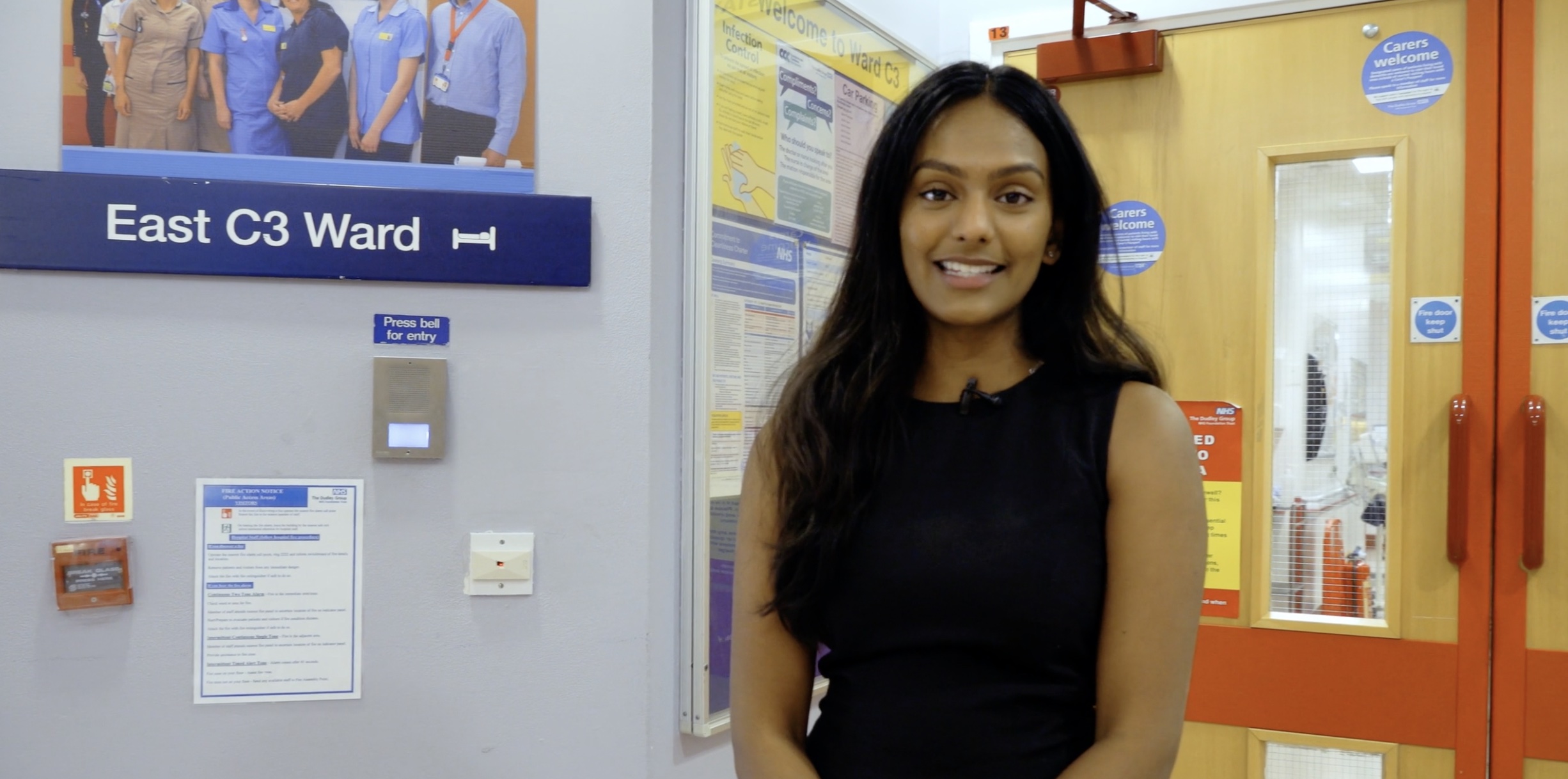
Ward C3 Elderly Care
- This is where you will be based most of the time during your rotation. This is a 52-bed ward split into four different nurse Station 4 is named the ‘Forget- Me-Not Unit’ and specialises in patients who have Dementia.
- Based on C3 there are 3 consultants (Dr Duja, Dr McGrath and a locum consultant), 4 registrars, 5 SHOs and 2 FY1s (you!)
- Minimum staffing is 1 SHO per Occasionally departmental staffing may mean you cover a station on your own with registrar support!
Orthogeriatrics – based on ward B2
- B2 is a Trauma & Orthopaedic
- Dr Michael (consultant) leads a daily orthogeriatric ward round on B2
- Based on Orthogeriatrics there are 2 consultants (Dr Michael and a locum), 1 registrar & 2 The FY1 from T&O is also part of Ortho-geriatrics team.
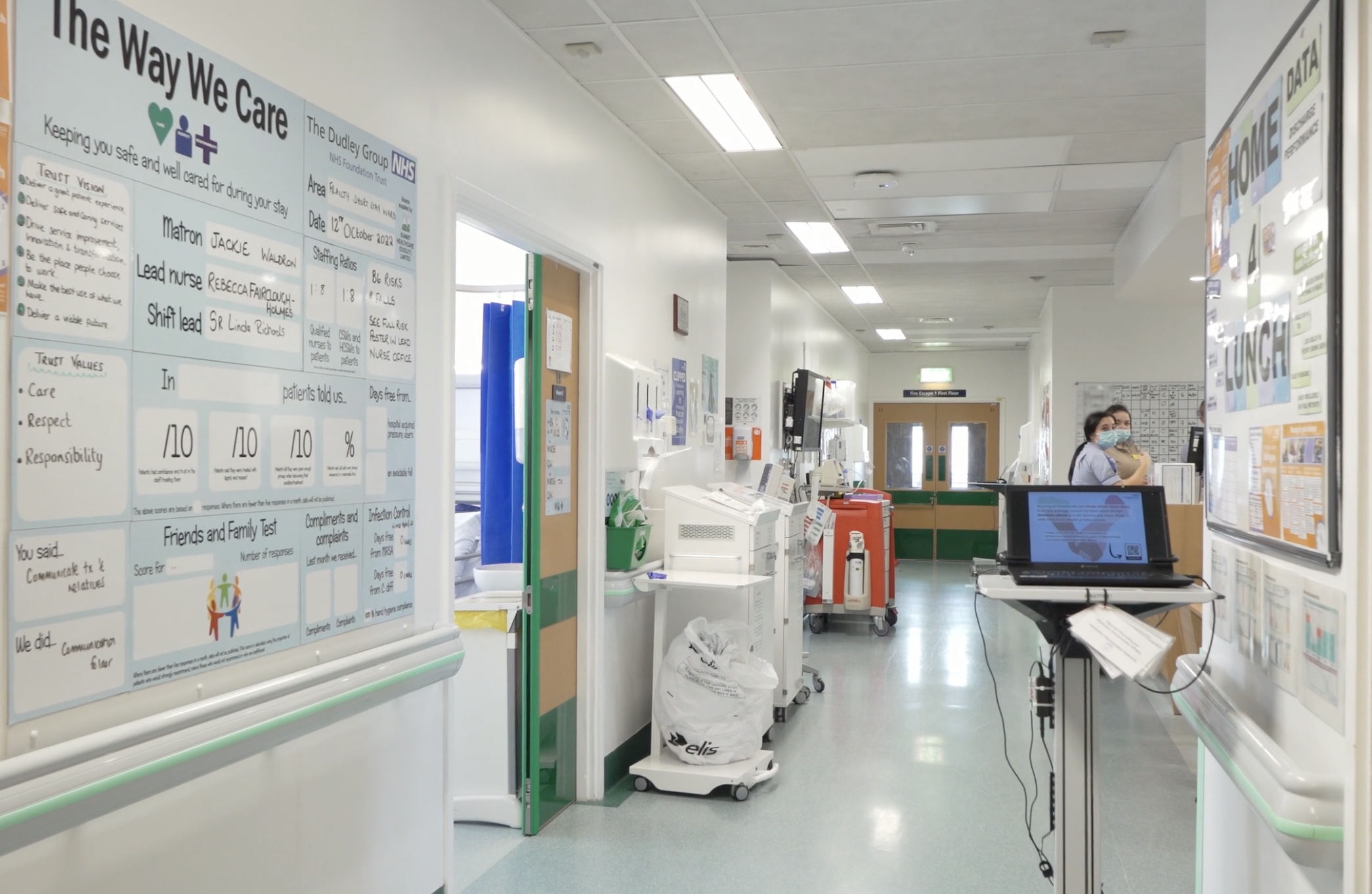
Frailty Assessment Unit (FAU) – currently based in SDEC area, will move to C6
This is an acute assessment unit attached to SDEC where patients who are ‘fit to sit’ are Ideally these patients should have been selected because they require geriatric input but are unlikely to require admission. .Patients will not have been clerked so require initial clerking and then post-taking with the consultant. You may occasionally be asked to go to FAU. FAU is led by different consultants each day.
Based on FAU there is 1 consultant for the morning & 1consultant for the afternoon (this may be covered by a registrar) and 1-2
Frailty Short Stay Unit – based on ward B6, moving to C6 soon
B6 normally operates as a short stay ward for frail patients who require less than 72 hours admission for acute management and also ones awaiting packages of care or nursing home Turnover here is high and the unit is led by Dr Ijaola with the help of one registrar and 2 SHOs. Similar to C3, with occasional gaps in departmental staffing, you may be asked to provide cover here with another SHO.
Outpatient Clinics
Includes:
- Parkinson’s clinics
- Falls clinics
- Memory clinics
- General Geriatrics clinics.
These are run at Russell’s Hall, Corbett & Guest Generally, the registrars and SHOs spend time at the outpatient clinics but you may be able to arrange some experience if this interests you.
Elderly Care Useful Information
C3 Ward Work
Teams:
- A locum consultant covers station 1 and 2.
- Dr Duja covers station 3.
Dr McGrath covers station 4 (Forget Me Not Unit)
Board Rounds
Board Rounds occurs daily on each station in order below. This is an MDT discussion regarding every patient on that station. Members at the board round include doctors, nurses, discharge coordinators, occupational therapists and physiotherapists. Together you run through the list of patients and have a brief discussion regarding their current medical plan, any issues and the current discharge plan. This may include place of discharge, for example if a patient is medically fit for discharge but awaiting a 24-hour care placement. Board rounds happen on each nursing station every morning at a different time:
- 10:30am – station 3 board round
- 10:45am – station 4 board round
- 11:00am – station 2 board round
- 11:15am – station 1 board round
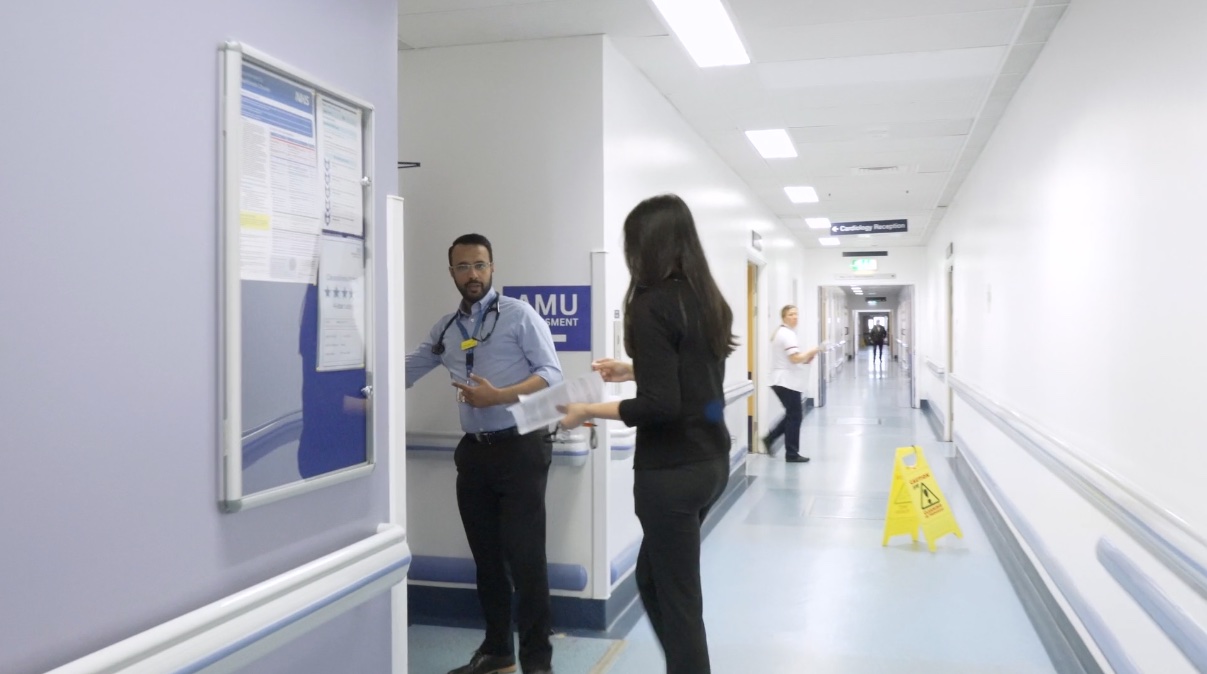
TTOs
Each team has 2 consultant ward round per week. On the other weekdays, a ward round is led by whoever is on the team that day (registrar, SHO). Consultants will review all new and unwell patients on those days. Consultants are available on all other days of the week to give advice (if required, you can also contact consultants via switchboard).
For consultant ward rounds you should use the consultant ward round proformas. It is helpful to prepare these sheets in advance if you are able to, including a list of the patient’s current problems, their past medical history (it is useful to include the patient’s social circumstance prior to admission e.g. residential home / nursing home), their most recent blood results / investigations, and their most recent observations and EWS score. Do not just copy from previous consultant ward round performas.
Overnight
There may be outstanding jobs or poorly patients that you need to handover to the on- call team before you leave at 5pm on a weekday. This should be done on Nerve Centre. You can access this via the Hub. The form will ask you for the job required, the patient details, and then a section for handover of information.
Ward Rounds
Elderly patients can have complex discharges requiring input from multiple different MDT members. For this reason, it is important that TTOs are completed in a timely manner and updated regularly where appropriate. There may be cut off times for TTOs that require a Medibox and cut off times for accepting patients back to residential/ nursing homes and packages of care. Make sure you have completed the additional documentation for any controlled drugs on the TTO!
When writing discharge letters for palliative patients it can be useful to refer to “GREAT” and GSF status:
- GP End of Life Register (GSF Green)– if you think your patient may die in the next 12 months, tell the GP so they can add them to the EOL Let the GP know if you have referred a patient to the Community Specialist Palliative Care Team.
- Resuscitation status (DNACPR) – is a DNACPR form in place/status updated on Sunrise? Make sure the form goes home with the patient and that the family/patient (with capacity) are aware. Communicate any decisions that have been
- End of life medications (GSF Amber) – if the patient may die within 6 weeks, you must discharge them with 10 ampoules of each anticipatory medication (you can find a quick reference guide to these by searching “palliative” on the There is also an anticipatory medication orderset on Sunrise).
- Advance Care Planning – any conversations with the patient about the future needs to be documented and communicated to the Use the ‘Advance Statement’ document if palliative or ‘Priorities of Care’ document if dying.
- Treatment escalation plan – advise the community teams RE ceiling of Would further hospital admission be of benefit or not? This information is essential to help community teams make decisions about re-admitting patients.
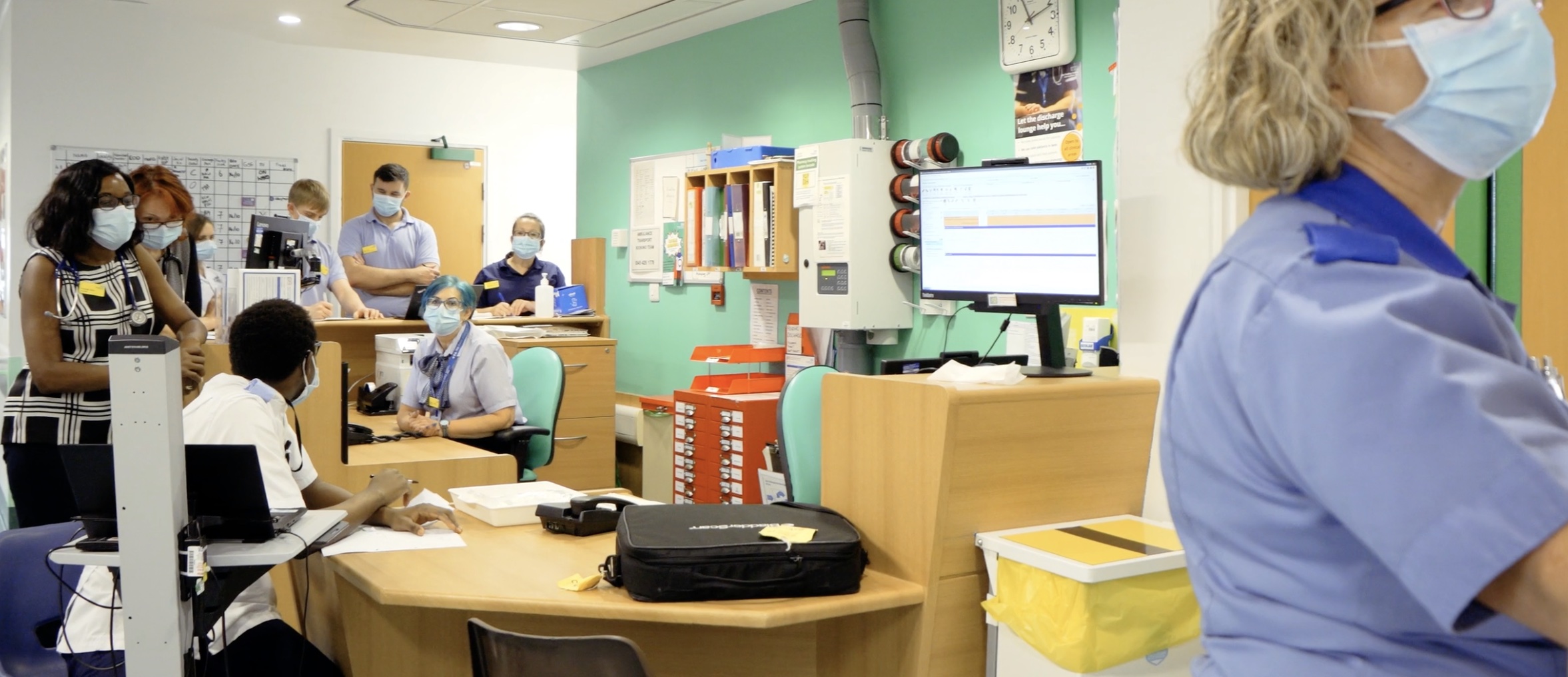
Leave
Annual Leave
Annual leave should be submitted at least 3 weeks in advance. You must submit leave via the MediRota App, and you will be informed about the approval depending on cover. If you have any queries you would like to discuss directly, you can email Sheryl or speak directly with Dr Duja
Sick Leave
If you can’t come in to work due to illness, you must contact:
- Medical workforce – must call them each day of sickness and when you return
- Sheryl Wyer – Sheryl will then communicate this to your relevant team
- Dr Hashir (Speciality Doctor) current rota co-ordinator
Weekends
There is a Geriatric Medicine consultant on call each weekend and bank holidays. Each morning, this consultant leads a ward round on Ortho-geriatrics, B6, FAU and C3. The nurse in charge compiles a list of new patients and unwell patients for this ward round.
The remaining patients do not have a formal ward round at the weekend but may be reviewed by the weekend doctor as requested by the nursing staff. As the C3 day team during the week, you are responsible for handing over to the weekend doctor, and you can also highlight unwell patients for weekend consultant review. On a Friday afternoon, each team compiles a handover list to be left on each station for the weekend doctor. This may include unwell patients requiring review, potential discharges and outstanding jobs like reviewing blood results or investigations that will happen over the weekend.
Rota
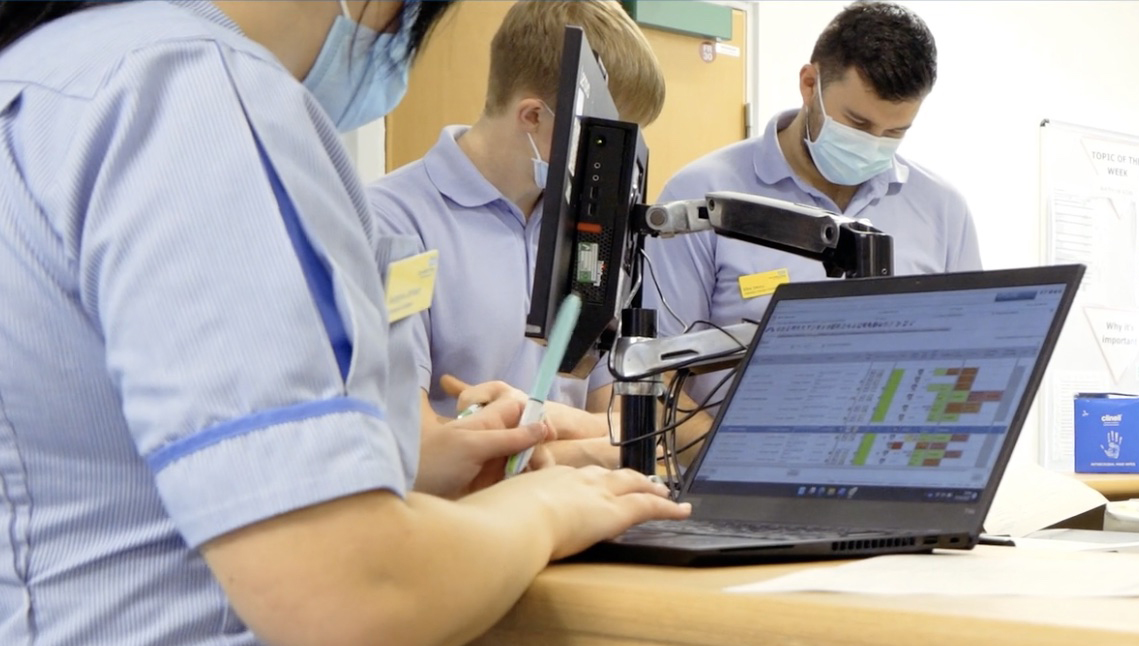
You will be sent your generic work schedule prior to starting the rotation. This describes the pattern of on call days and rest days you will have. Whilst on Geriatric Medicine, you will be part of the General Medicine on call rota (please see separate induction pack).
When you receive the on-call rota, you can match this up to your generic work schedule to work out when your rest days (AKA rota off days) will be. This will usually be pre-filled for you on the MediRota App.
The weekly ward rota is coordinated by Speciality Doctor and Dr Duja’s secretary Sheryl Wyer with the help of Dr Duja. This is updated regularly on the MediRota. As the FY1, you will rotate different stations and rota will be updated regularly on MediRota.
Try to be in charge of your own patients (half a station or full station) each week. You will learn far more if you have continuity throughout the week – floating between stations performing bloods/cannulas is of less educational value.
If you need to swap an on-call period with somebody else on the on-call rota, you need to discuss this with Sheryl to ensure they have adequate cover on the ward on the date you will now be on call/on a rest day. If approved, you should then fill in a swap form and inform GIM rota co-ordinator (currently Emma Alexander). On some specialties they allow you to move your rest days around independently of your on calls, however on Geriatric Medicine this is only allowed in exceptional circumstances and has to be approved by Dr Duja.
Death Certificates / Mortality Audit
On your rotation, some of your patients may pass away whilst in hospital. You may then be called by the bereavement office to complete the death certificate and cremation form. It is important to discuss the cause of death with the consultant responsible for that patient. You can then document in the notes that you have discussed this with them and will give you confidence when documenting the cause of death.
Geriatric medicine completes an audit of all inpatient mortality. Each time you complete a death certificate for a patient under the geriatric department (not patients you may have seen on call), you should complete an additional audit form. These forms can be obtained in the bereavement office, from the secretaries, and you should be emailed a copy on departmental induction. They should then by emailed/mailed/handed into the secretaries (either a physical copy to Esk house or email the form to Dr Ijaola’s secretary). If you forget to fill in the form, you will likely be chased by the secretaries!
Elderly Care Learning Opportunities
Monday Lunchtime Educational Meeting

Every Monday there is a Care of the Elderly Educational Meeting. This occurs from 12:30– 13:30 in the Post-Graduate Centre (South Block).
There is usually lunch provided by a drug rep, and the drug rep will give a short talk at the start of the meeting.
After this you discuss morbidity and mortality. Each consultant’s team will present any mortality that has occurred that week (you should keep a record of the deaths in preparation for this meeting). You will discuss a brief synopsis of the case along with the cause of death. Liaise with your team in advance so you know which cases you need to present.
At 13:00 one of the junior doctors presents an interesting case to the rest of the department. Sheryl will email out a rota in advance so that you know which date you are presenting. It is your responsibility to swap this date with another junior doctor if you are on call/on annual leave / on a rest day / any other reason you won’t be available to do your presentation on the date allocated. In your presentation you should present the case, with the aid of a PowerPoint presentation, and then give opportunity for discussion around potential differential diagnoses and management plans (this should be interactive).

Grand Rounds
Are weekly on Thursdays between 13:00-14:00 in the education centre. These are lectures presented by different clinicians in the trust on useful and important topics.
On-call
During your time on this rotation, you will also be rostered on to the general medical on-call rota. At present, FY1s take part in both medical and surgical on-calls, regardless of what their home speciality is. On-call rotas are on Medirota – it will tell you the type of shift you are doing, timings, and also tells you your ‘off days’ (days off you are given pre- and post-on-calls). If you are not on-call or on an off day, you will be in the ward (look in MediRota).
Audits
There are plenty of opportunities to participate in audits, whether this is mandatory trust audits or a new audit. You will always be welcomed to present audits once completed. Speak to your Clinical Supervisor or Dr Ijaola (departmental audit lead) if you want to get involved in one.
Clinic
Providing there is enough cover on the ward, you can attend clinic for further learning opportunities. Try and go to one or two. Discuss this with your colleagues – the IMTs take priority as they have to log a certain number of clinic hours throughout the rotation.
Teaching
As you can imagine, there are always medical students around to teach. Some consultants have groups of medical students they teach weekly and may ask you teach them one week. Alternatively, if they don’t offer you can always ask! Teaching experience is always useful for your portfolio. Take feedback forms with you if you do teach!
Health and Wellbeing
Staff that are happy and thriving in their working environment will inevitably have a more enjoyable experience in the workplace, contributing to the provision of excellent health care for all of our patients. The Dudley Group recognises our commitment to staff wellbeing in a variety of ways.
Select the link below to find out more how the Trust can support you.


